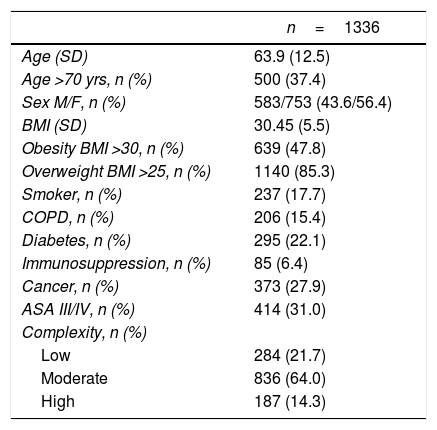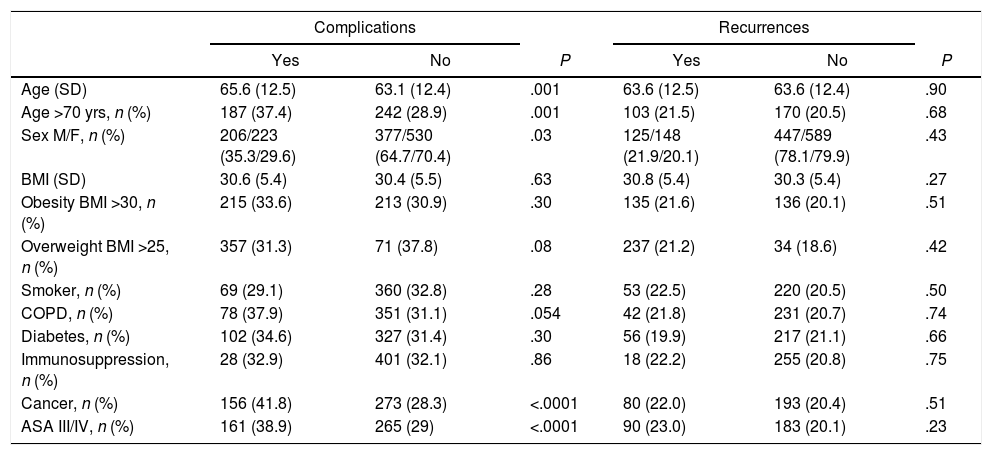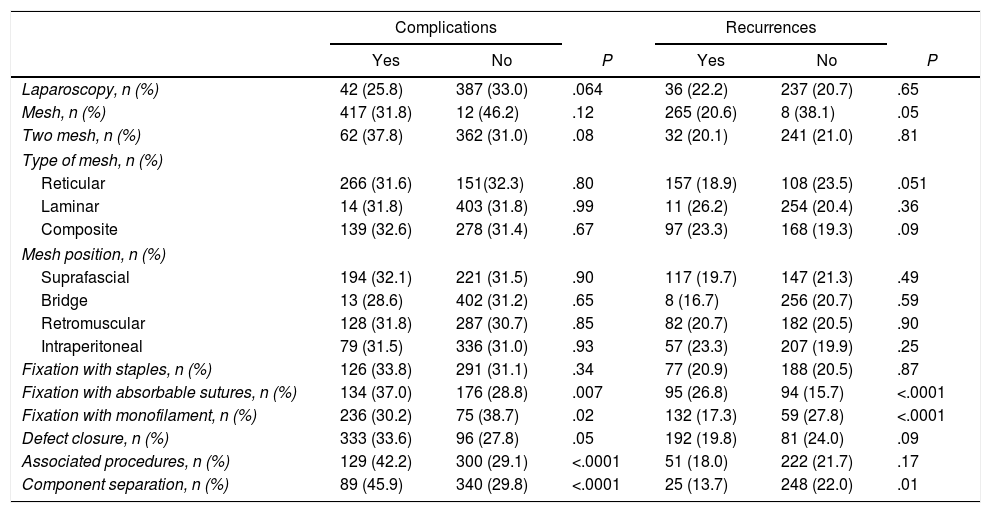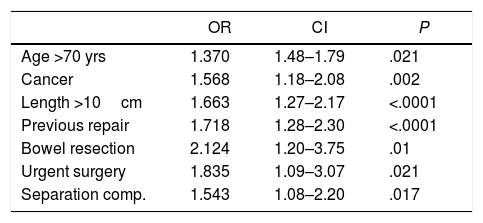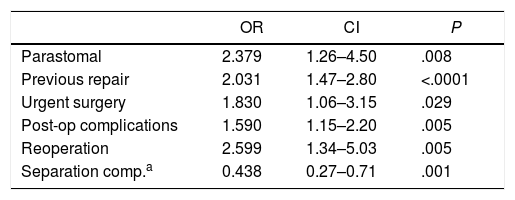Registries are powerful tools for identifying factors predicting bad results. Our objective was to analyze data from the Spanish Registry of Incisional Hernia (EVEREG) to detect risk situations for the development of complications and recurrences.
MethodsWe have analyzed data of the cohort of hernias registered during the period from July 2012 to June 2014. We have compared the data between complicated and non-complicated patients in the short and long term follow-up. Data compared were: patient demographics, comorbid condition, hernia defect characteristics and surgical technique to determine which of them may be predictors of poor outcomes.
ResultsDuring the period of study, we collected data from 1336 hernias (43.7% males; 56.3% females) with a mean age of 63.6 years (SD 12.4) and BMI of 30.4 (SD 5.4). In the multivariate analysis, factors associated with complications were: age >70 years, previous neoplasm, diameter greater than 10cm, previous repair and bowel resection. Factors related with recurrences were: parastomal hernia, previous repair, emergency repair, postoperative complications and reoperation. A separation of components was the only protective factor for this type of analysis (OR 0.438; CI 0.27–0.71; P=.0001).
ConclusionsRisk factors for the development of complications and recurrences must be considered for promoting preoperative patient prehabilitation, planning the surgical technique and referring patients to specialized abdominal wall units.
Los registros son herramientas potentes para identificar situaciones de riesgo de mala evolución. Nuestro objetivo ha sido analizar los datos del Registro Nacional de Hernia Incisional (EVEREG) para detectar situaciones de riesgo para el desarrollo de complicaciones y recidivas.
MétodosSe analizan los datos de la cohorte de hernias registradas en el período desde julio de 2012 hasta junio de 2014. Se realiza una comparación estadística entre las hernias que presentaron complicaciones y recidivas, y su relación con los pacientes, las características de las hernias y la técnica quirúrgica, para determinar cuáles de ellos pueden predecir malos resultados.
ResultadosEn el período de estudio disponemos de datos de 1.336 hernias (43,7% varones; 56,3% mujeres), con una edad media de 63,6 años (DE: 12,4) e IMC de 30,4 (DE: 5,4). En el estudio multivariante las variables asociadas a la presencia de complicaciones fueron: edad superior a 70 años, neoplasia, longitud del defecto mayor de 10cm, reparación previa y resección intestinal. Las variables asociadas a recidiva fueron: las hernias paraestomales, la reparación previa, la cirugía urgente, la aparición de complicaciones postoperatorias y la reintervención quirúrgica. El uso de una separación de componentes fue el único factor protector en este tipo de análisis (OR: 0,438; IC: 0,27–0,71; p=0,001).
ConclusionesLa presencia de factores de riesgo para la aparición de complicaciones y recurrencias debe ser tenida en cuenta con el fin de proyectar la prehabilitación del paciente para la cirugía, planificar la técnica quirúrgica y su derivación a unidades especializadas.






